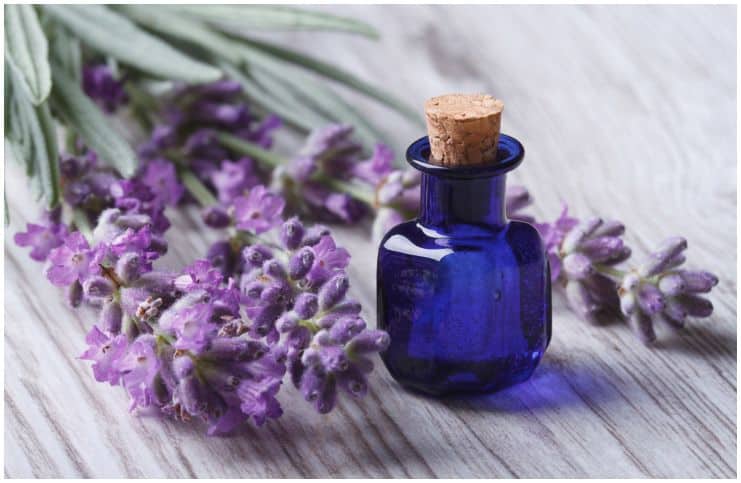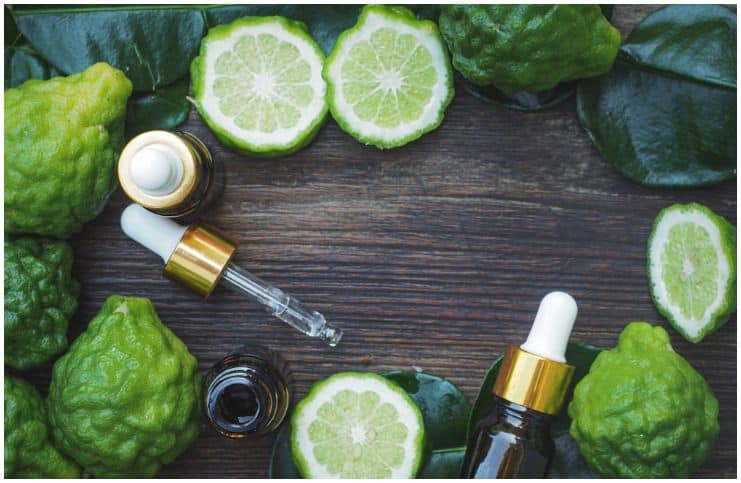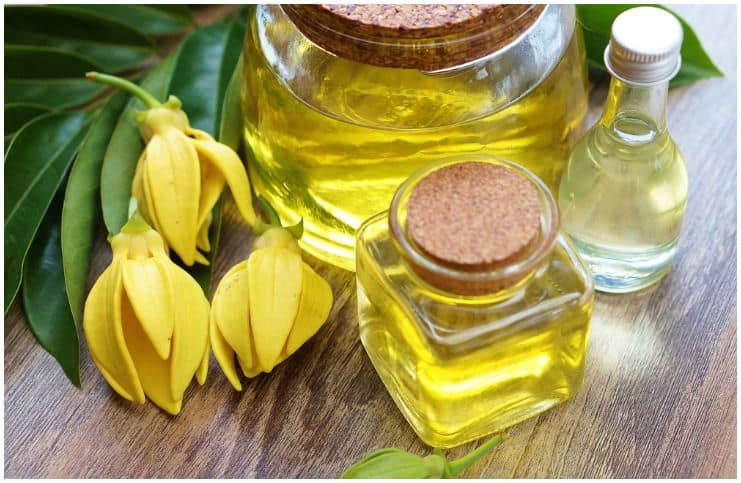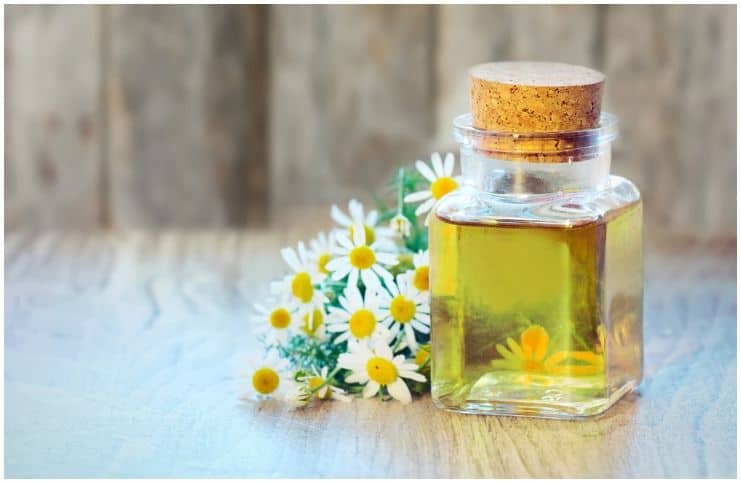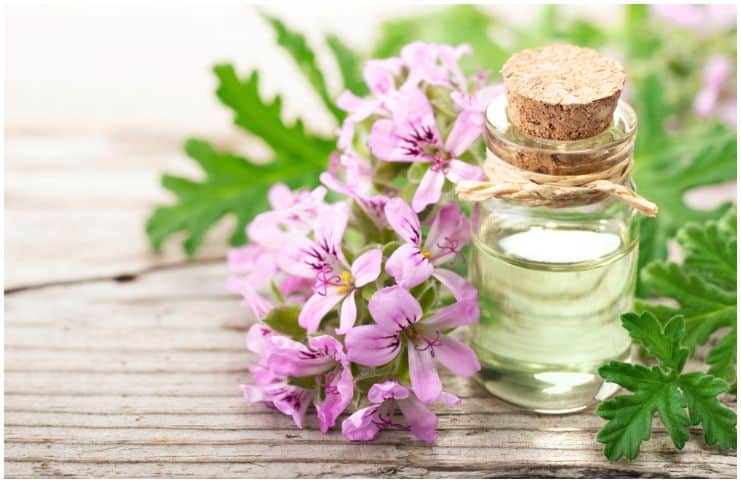Essential oils have been used throughout history due to their naturally high content of organic compounds extracted from stem, leaves, flower and the root of the plant. They are in fact, the very essence of nature.
Panic attacks are one type of anxiety disorder. Symptoms range from mild to severe and include – sweating, tingling sensations, rapid heart rate, hot flashes, shortness of breath, fear of dying, trembling, chills, dizziness, nausea, or a sense of terror.
By using the natural remedies for panic attacks and anxiety described below, you can treat the underlying root cause of these disorders and get lasting relief.
Here are ten calming essential oil blends for anxiety and panic attacks:
#1 Rose
Extracted from the petals of the rose flowers, it is useful when the person goes through a period of intense suffering or suffers from panic attacks.
In addition, it may be used for the relief of depression and menstrual symptoms. It is safe to use whether you are nursing or pregnant, have allergies, or even if you are extra sensitive to certain essential oils.
#2 Lavender
Lavender is recommended for any condition which has to do with relaxing your mental body since it has a calming effect. Lavender is also considered a nervous system restorative and helps with restlessness and anxiety, sleep, inner peace, panic attacks, and general nervous tension.
You can rub a few drops of oil on the back of the neck for some instant calming.
#3 Grapefruit
When inhaled, it can help curb headaches, anxiety, hangovers, mental fatigue, restlessness, and depression. One reason is that grapefruit essential oil increases norepinephrine and epinephrine levels. Moreover, it is great to diffuse with other remedies, such as rose, because it sweetens and lightens up the blend.
#4 Bergamot

Bergamot is used for a variety of disorders, particularly for reducing anxiety among people with mild depression, work-related stress, and even pain relief.
According to some studies, bergamot reduces the body’s stress hormone production. For optimal results, diffuse it into the air or apply one drop to your forehead to reduce anxiety levels.
#5 Cedarwood
Cedarwood is believed to be life-giving due to its intense properties. More importantly, it is a remarkable sedative that has a calming and soothing effect on the mind relieving anxiety and tension.
It may also relieve chronic rheumatism and painful arthritis.
#6 Ylang-Ylang
Ylang-ylang scent restores equilibrium and confidence and can be used to treat anxiety, panic attacks, and depression.
Furthermore, it may calm heart nervous palpitations and agitation and is a potent sedative, that can help with insomnia. Additionally, it supports the health of your heart by enhancing the blood flow.
#7 Frankincense
Frankincense is highly prized by many eastern cultures for its capacity to reduce restlessness and to help calm the mind. To reduce anxiety, combine it with lavender and bergamot of equal parts.
This combination equilibrates the mind and body, improves self-esteem and gives a profound sensation of calmness and comfort.
#8 Vetiver
A few studies have concluded that vetiver is an effective remedy for anxiety effects and is called the “oil of tranquility” in many countries such as Sri Lanka and India.
It also decreases hypersensitivity and jitteriness, is considered a nervous system tonic and is useful in shock and panic attacks. Furthermore, vetiver works by providing a revitalizing and tranquil effect to the mind and body, therefore reducing anxiety levels by helping you become more aware of yourself.
#9 Chamomile
The smell of chamomile is pretty distinguishable from most other plants – it smells a little fruity or sweet at times. It is popular for improving inner harmony by decreasing worry, irritability, and anxiety. In addition, it’s frequently used for stress-related skin conditions like eczema.
#10 Geranium

Geranium is one of the best remedies for calming and is used for anxiety and depression. Furthermore, geranium is an excellent nerve tonic and has a profound effect on emotions.
How these remedies are applied for anxiety management and reducing panic attacks:
Inhalation
The simplest and easiest method is inhaling straight from the bottle. Another method is to put a drop of oil on your hands and cup your hands over your nose.
Diffusion
Diffusing is a potent method to get most of the benefits, particularly for the mind. Moreover, diffusing these natural remedies disperses the oils into the air filling the room with a wonderful and relaxing scent.
Topical application
Applying them directly to your skin can cause irritation, hence, is essential to dilute them (with a carrier oil) before applying them to your skin. A “carrier oil” is used to dilute the potion and to protect the skin against direct contact.
Baths
This is another good way of relaxing and making the bath more therapeutic. Add to bath a few drops of it and stir just before entering the water.
Recipe for panic attacks:
- 3 drops ylang-ylang:
- 5 drops lavender;
- 2 drops frankincense.
Combine all these into a small glass jar or bottle with a lid. They should be stored in dry, dark, cool places since their potency diminishes with exposure to heat, air, and light.
Other natural remedies for anxiety relief:
- valerian root – this is one of the most well-known herbal remedies for anxiety and stress. Nicknamed ”nature’s tranquilizer,” valerian root is claimed to calm the nerves without the adverse effects of prescription medications.
- St John’s Wort – it may reduce anxiety, nervousness, and depression, due to the presence of hyperforin, hypericin, and flavonoids.
- Gotu Kola – this Ayurvedic herb may lower your anxiety without the negative effects of drugs, plus, it is considered by many to be a true adaptogenic herb.
- Ashwagandha – it is a popular adaptogenic herb in Ayurvedic medicine which is known to relieve anxiety and to protect the nervous system. Moreover, ashwagandha is effective in supporting people through panic attacks, depression, and phobia.
- Physical exercise and relaxation methods, like yoga, meditation, tai chi are all-natural remedies that can help lower anxiety levels.
Other options for the treatment of anxiety disorders include:
- support groups;
- mindfulness;
- medication;
- relaxation techniques;
- structured problem solving;
- correct breathing techniques;
- building self-esteem;
- online counseling (like Regain or BetterHelp.com);
- behavior therapy;
- cognitive therapy.
References http://info.achs.edu/blog/ https://www.ncbi.nlm.nih.gov/pmc/articles/PMC3612440/ https://www.khanacademy.org/test-prep/mcat/social-sciences-practice/

